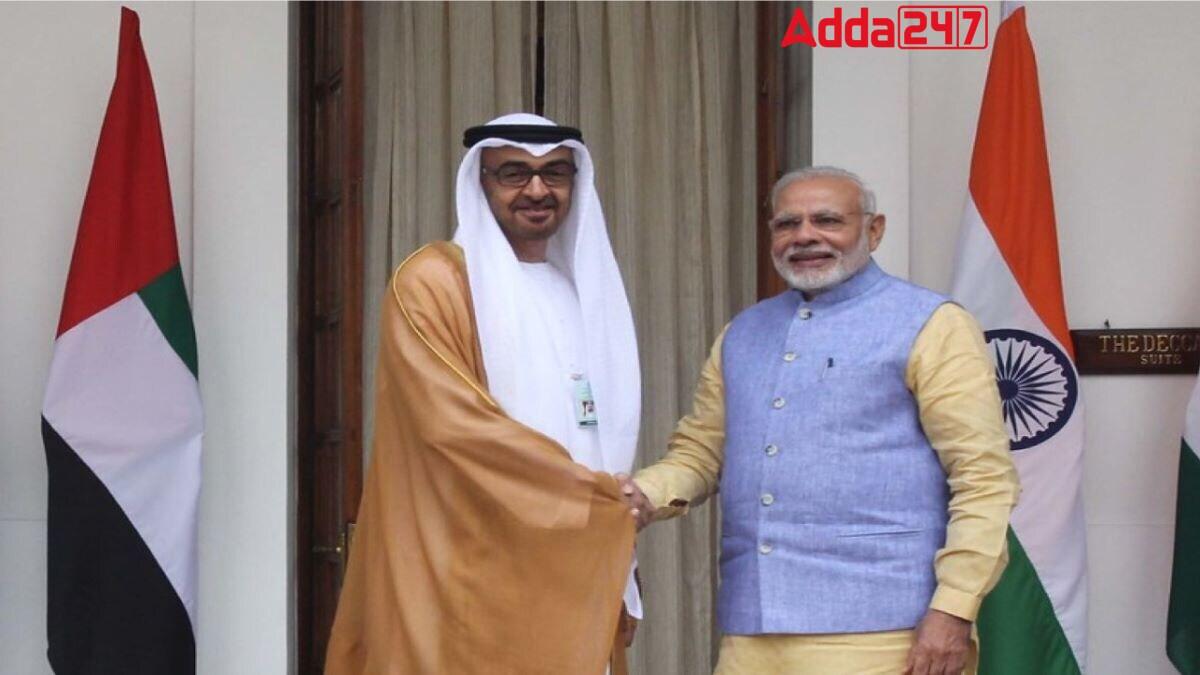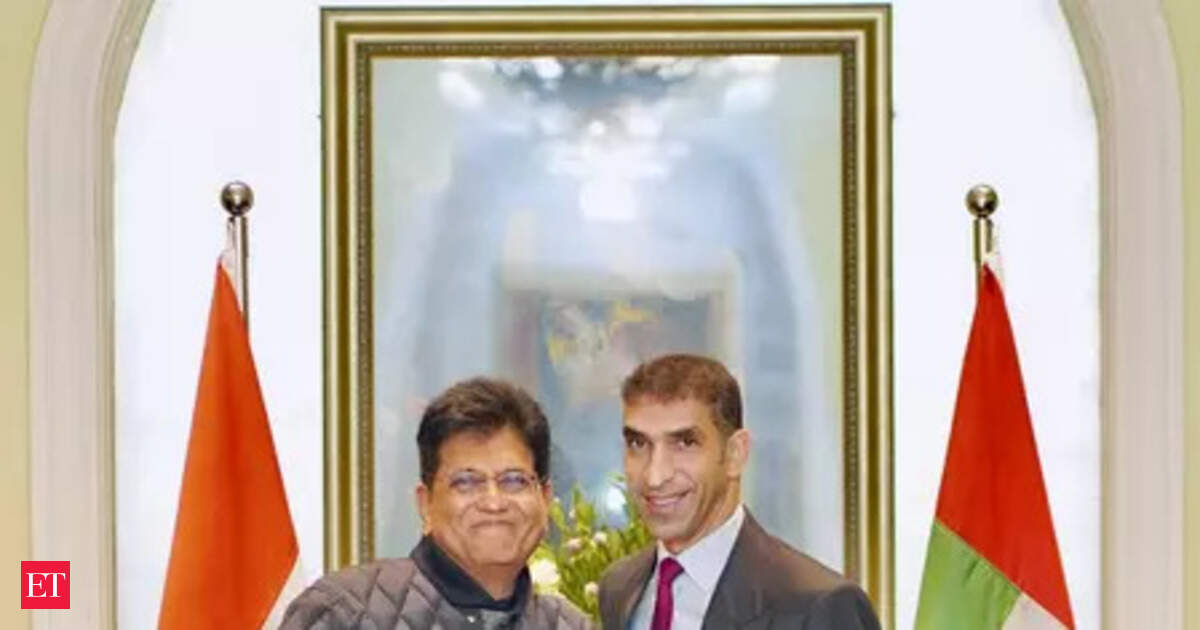India and UAE Strengthen Bilateral Economic Ties, Targeting $100 Billion Non-Oil Trade by 2030




The dynamic partnership between India and the United Arab Emirates has reached a pivotal milestone with the comprehensive bilateral meeting held on 29th August 2025. Union Minister of Commerce & Industry, Shri Piyush Goyal, and UAE's Minister of Foreign Trade, H.E. Dr. Thani bin Ahmed Al Zeyoudi, convened to strengthen the Comprehensive Economic Partnership Agreement (CEPA) and chart an ambitious course toward achieving USD 100 billion in non-oil trade by 2030.
This meeting represents more than traditional diplomatic engagement; it embodies a transformative vision for bilateral economic cooperation. The discussions reaffirmed both nations' commitment to expanding trade relationships while exploring emerging sectors that promise to redefine their partnership dynamics. With India demonstrating robust economic growth of 7.8% this quarter, the nation continues its trajectory toward becoming a USD 5 trillion economy by 2027 and an ambitious USD 32-35 trillion economy by 2047.
The partnership's resilience amid global challenges underscores its significance as a defining alliance of the 21st century. Both Ministers emphasized that this relationship transcends mere economic transactions, representing a beacon of collaborative effort and visionary leadership in the global arena.
The bilateral discussions delved extensively into exciting opportunities within emerging sectors, particularly renewable energy, digital infrastructure, supply chain resilience, and healthcare. These sectors represent strategic pillars for sustainable economic growth and technological advancement between the two nations.
Renewable energy collaboration stands at the forefront of this partnership, with both countries recognizing its critical role in transforming their energy landscapes. The focus on digital infrastructure emphasizes its vital importance as the backbone of modern economies, enhancing connectivity and trade efficiencies across regions. Supply chain resilience has emerged as imperative following recent global disruptions, with both nations developing strategies for robust networks that can withstand uncertainties.
Healthcare sector opportunities particularly highlight the expansion of pharmaceutical trade and the integration of traditional medicine practices, including Ayurveda, showcasing a unique blend of modern innovation and ancient wisdom within the India-UAE partnership framework.
Join New Silk Road Capital, a dedicated corridor connecting wealth, logistics, and digital finance - bridging East and West. With 29 years of experience and a proven investment track record exceeding €10 billion, Silk Road provides investors with seamless access to both high-potential opportunities and capital across the Middle East and Asia.
Both countries explored groundbreaking initiatives to improve trade facilitation, including the implementation of the Local Currency Settlement System (INR-AED) and strategic events like Bharat Mart in the UAE. The promise of timely trade data sharing was highlighted as essential for efficient CEPA monitoring, while regulatory and market access issues will be addressed promptly through the CEPA Joint Committee to ensure smoother trade interactions.
The stakeholder meetings held on 30th August 2025 deepened sector-specific partnerships, particularly in pharmaceuticals and food sectors. The pharmaceutical discussions addressed the rapidly shifting geopolitical landscape while focusing on smoother trade facilitation. The UAE demonstrated enthusiasm for expediting registration processes and enhancing regulatory ease, while India welcomed audits and inspections by UAE authorities.
A particularly exciting development involves traditional medicine avenues, especially Ayurvedic products, signaling an innovative chapter in the India-UAE healthcare alliance that combines modern pharmaceutical excellence with traditional healing wisdom.
The food sector witnessed the launch of the transformative Bharati Scheme by APEDA, designed to nurture over 100 food and agritech start-ups, helping them develop brands and foster business-to-business partnerships. This initiative represents India's commitment to innovation in agricultural technology and food processing excellence.
A significant milestone includes the signing of a crucial agreement with Dubai World Trade Centre, positioning India as the partner country for Gulf Food 2026 in Dubai. This prestigious event will feature a spectacular 1200 square meter pavilion showcasing India's prowess in the food, marine products, tea, coffee, and spices sectors.
The UAE has committed to addressing concerns from the Indian food and beverage industries, tackling challenges including retail pricing, pricing norms, and mandatory testing requirements for rice shipments, promising smoother trade pathways and enhanced market access.
The atmosphere during business interactions between industry leaders from both nations was energetic and optimistic, celebrating CEPA's remarkable achievements over the past three years while establishing a bold vision for future collaboration. Dr. Thani emphasized the resilient nature of the India-UAE partnership, highlighting its role as a pivotal force driving prosperity and shared innovation.
These developments reflect unwavering determination to accelerate investment flows and establish the India-UAE alliance as a cornerstone of 21st-century economic collaboration. The partnership demonstrates how strategic cooperation can harness innovation, drive sustainability, and achieve shared prosperity through collaborative effort and visionary leadership.
Gulf Food 2026 will serve as more than an exhibition; it represents a testament to vibrant trade relationships and innovation-driven prosperity that sets a compelling example for global economic partnerships. Through ongoing reforms and strategic collaborations, both nations are creating fertile ground for future growth and establishing a legacy of shared success in the international arena.

Comments